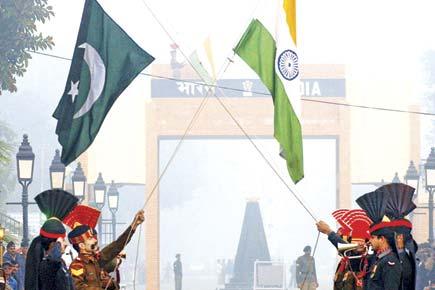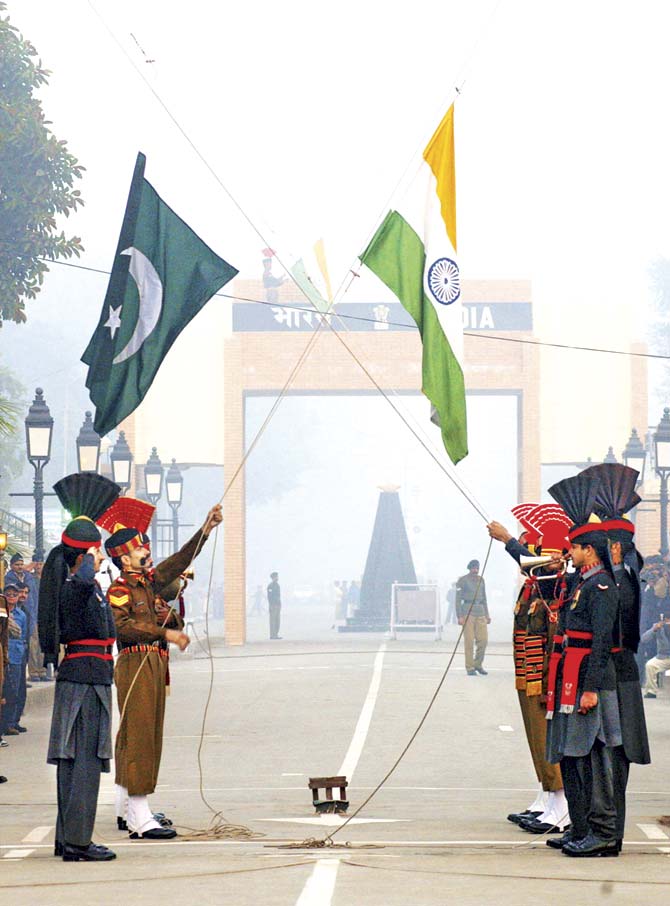Indian High Commissioner to Pakistan, Dr TCA Raghavan, recently said that there is a need to remove misperceptions between New Delhi and Islamabad for the restoration of mutual trust

 Indian High Commissioner to Pakistan, Dr TCA Raghavan, recently said that there is a need to remove misperceptions between New Delhi and Islamabad for the restoration of mutual trust. He said: “India and Pakistan should behave like normal trading partners...Fears that enhanced trade with India would result in Indian goods flooding Pakistani market, rendering local traders out of business, is misplaced.” Giving the example of China and India, Dr Raghavan emphasised how this is the way forward for countries to remove barriers in the larger interest of their nations.
Indian High Commissioner to Pakistan, Dr TCA Raghavan, recently said that there is a need to remove misperceptions between New Delhi and Islamabad for the restoration of mutual trust. He said: “India and Pakistan should behave like normal trading partners...Fears that enhanced trade with India would result in Indian goods flooding Pakistani market, rendering local traders out of business, is misplaced.” Giving the example of China and India, Dr Raghavan emphasised how this is the way forward for countries to remove barriers in the larger interest of their nations.
ADVERTISEMENT

Pakistani and Indian soldiers lower their national flags at the border near Lahore. If people-to-people contact through liberal visa policies could be encouraged, Indians and Pakistanis would be able to travel to each other’s countries and see for themselves what lies across the border(s). That would break many a stereotype. Pic/Getty Images
The Indian High Commissioner is quite right. Despite the baggage of partition, territorial disputes and decades’ old hostilities, these two neighbouring countries can make way for peace and stability in the South Asian region by strengthening their trade ties. Once this hurdle is passed, the next step should be to have an easier visa regime between the two neighbours. One of the most significant reasons SAARC has not had much success is because of the continuous tensions between New Delhi and Islamabad. SAARC has the potential to be as successful, if not more, than the European Union but only if the two nuclear-armed neighbours decide to give peace a chance.
If one looks at the election campaigns during the last three general elections in Pakistan, no mainstream political party has ever led an anti-India campaign. In fact, Prime Minister Nawaz Sharif’s party, the Pakistan Muslim League-Nawaz (PML-N), mainly won because it focused on domestic issues like power shortage, economic growth but, at the same time, it also promised to have peaceful relations and trade ties with India. It is no secret that PM Sharif is invested in the idea of peace with India. His voters have no objection to this policy either.
There was once a time that the people of Pakistan obsessed about India as much as our security establishment and the state. Not anymore. The average Pakistani does not obsess about India unless pressed or provoked on the issue. In that sense, the rivalry with India is becoming more and more passive at the societal level. It is only at the level of the hard right-wing organisations and the military establishment, where it still remains a pressing issue. Even the Pakistani media has changed over the years. Sociologist and political commentator Umair Javed says Pakistani media falls into jingoism when nudged along by the military establishment, but by and large, the media has almost inadvertently made Indian pop culture a major part of Pakistan’s urban life. Indian television shows, Bollywood news and gossip are often covered by the mainstream media without fuss. By and large, our politicians, media and our people have come a long way vis-a-vis India.
There are many Pakistanis who want to visit India and many Indians who want to visit Pakistan. If people-to-people contact through liberal visa policies could be encouraged, Indians and Pakistanis would be able to travel to each other’s countries and see for themselves what lies across the border(s). That would break many a stereotype. Trade and cultural ties would lead to economic growth and stability in the region. The two states must facilitate this process.
The writer is a Pakistani journalist. Reach her at mehmal.s@gmail.com
 Subscribe today by clicking the link and stay updated with the latest news!" Click here!
Subscribe today by clicking the link and stay updated with the latest news!" Click here!






